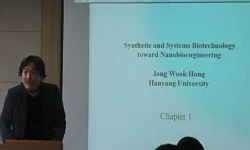<P><B>Abstract</B></P> <P>We report the development of amplification-free surface-enhanced Raman scattering (SERS)-based DNA assays for the rapid and highly sensitive detection of prostate cancer antigen 3 (PCA3) mimic D...
http://chineseinput.net/에서 pinyin(병음)방식으로 중국어를 변환할 수 있습니다.
변환된 중국어를 복사하여 사용하시면 됩니다.
- 中文 을 입력하시려면 zhongwen을 입력하시고 space를누르시면됩니다.
- 北京 을 입력하시려면 beijing을 입력하시고 space를 누르시면 됩니다.


SERS-based genetic assay for amplification-free detection of prostate cancer specific PCA3 mimic DNA
한글로보기https://www.riss.kr/link?id=A107703359
- 저자
- 발행기관
- 학술지명
- 권호사항
-
발행연도
2017
-
작성언어
-
- 주제어
-
등재정보
SCOPUS,SCIE
-
자료형태
학술저널
-
수록면
302-309(8쪽)
- 제공처
-
0
상세조회 -
0
다운로드
부가정보
다국어 초록 (Multilingual Abstract)
<P><B>Abstract</B></P> <P>We report the development of amplification-free surface-enhanced Raman scattering (SERS)-based DNA assays for the rapid and highly sensitive detection of prostate cancer antigen 3 (PCA3) mimic DNA. This technique does not require any DNA amplification process using thermo-cycles in conventional polymerase chain reaction (PCR) due to its highly sensitive detection capability. Herein, the PCA3 mimic DNA, composed of 45 nucleotide sequences, was sandwiched between two probe DNA-immobilized particles (ASO<SUB>735</SUB>-conjugated detection HGNs and ASO<SUB>683</SUB>-immobilized capture magnetic beads) by hybridization reactions. Its quantitative analysis was performed by monitoring the characteristic Raman peak intensity of sandwich DNA complexes. The limit of detection (LOD) is estimated to be 2.7fM, which is about four orders of magnitude more sensitive than that of conventional PCR. This SERS-based DNA assay technique is expected to be a potentially useful tool for early disease diagnosis.</P> <P><B>Highlights</B></P> <P> <UL> <LI> We developed a SERS-based biosensor for the highly sensitive detection of PCA3 mimic DNA. </LI> <LI> DNA amplification process is not required for this SERS-based assay platform. </LI> <LI> This method has strong potential to be a tool for early genetic disease diagnosis. </LI> </UL> </P>
동일학술지(권/호) 다른 논문
-
- Elsevier
- Kim, Dong-Min
- 2017
- SCOPUS,SCIE




 ScienceON
ScienceON


